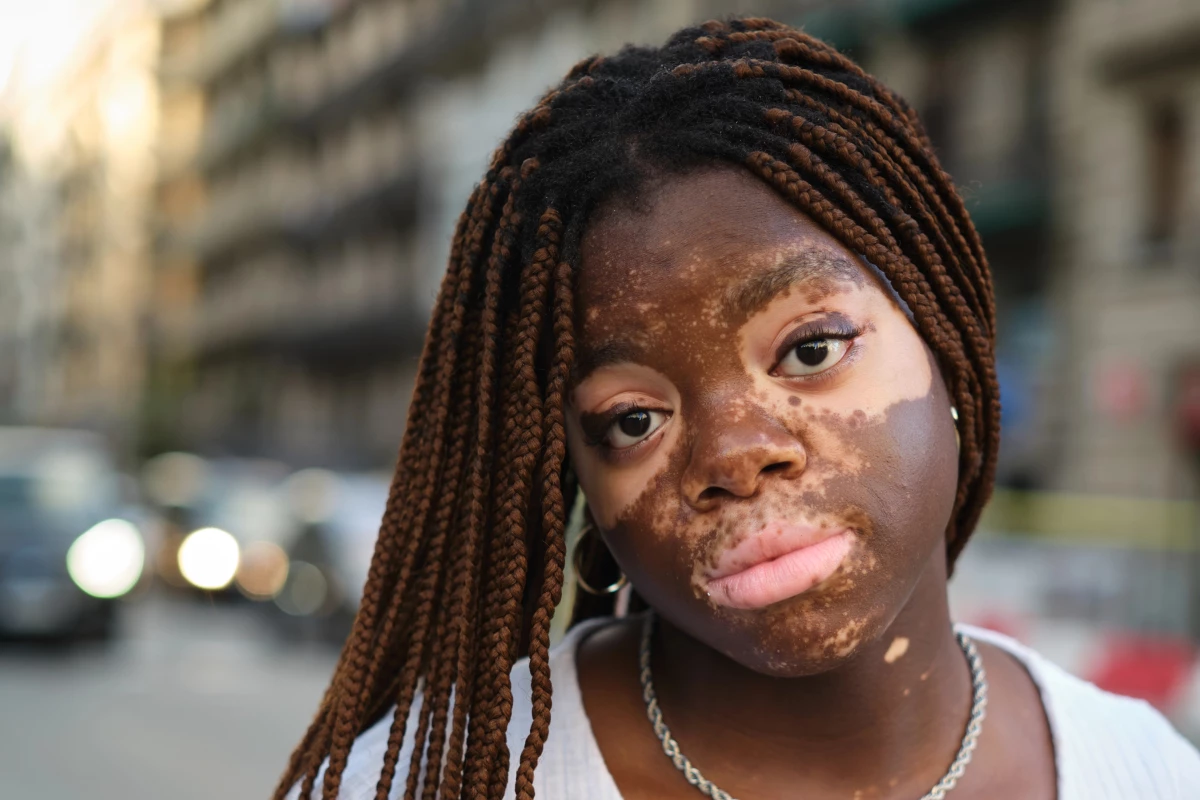There could be new hope for people afflicted with the skin-discoloring disease, vitiligo. A new treatment reportedly works great on mice with the malady, and it utilizes a natural substance produced by beneficial gut bacteria.
Vitiligo is an autoimmune condition in which cells known as melanocytes are killed off in certain areas of the skin.
Melanocytes produce melanin, a substance which gives the skin its pigmentation. Therefore, with those cells out of action, the afflicted skin loses its normal color. The result is patches of bleached-looking skin that aren't harmful, but that do affect the person's appearance.
Although treatments such as steroidal creams do exist, they don't work well on everyone, plus they may have unpleasant side effects.
Recent studies have indicated that in vitiligo-afflicted tissue, there's an imbalance in the community of different types of microbes that naturally populate the skin. More specifically, there's a lack of beneficial probiotic bacteria, which protect the melanocytes, while there's an abundance of harmful bacteria such as Streptococcus.
With these facts in mind, scientists from Northwestern University looked to Bacillus subtilis, a probiotic bacteria found in the gut (and in soil). The researchers used a modified version of the microbe to produce larger-than-normal quantities of bioactive molecules known as exopolysaccharides. Called EPS for short, these substances were already known to reduce unwanted immune responses.
In lab tests performed on mice with vitiligo, one group of the rodents received weekly EPS injections for a total of 18 weeks, while a control group was left untreated. Although there was no change in the control group, the pigment loss on the backs of the EPS-treated mice was ultimately reduced by a whopping 74%.
Tissue analysis showed that in the skin of the treated mice, there was a 63.6% reduction in cytotoxic T cells, which kill melanocytes. At the same time, there was a 1.7-fold increase in melanocyte-protecting regulatory T cells.
"The results in our model were astonishing," says Prof. I. Caroline Le Poole, senior author of a paper on the study. "We found that administering a microbial compound weekly to vitiligo-prone mice significantly suppressed disease progression. It made a spectacular difference in an aggressive model of the disease."
Further research will focus on assessing how effective the treatment is on humans, and how long the effects last. The EPS may ultimately be administered in the form of an ointment or food additive, sparing patients from weekly injections.
The paper was recently published in the Journal of Investigative Dermatology.
Source: Northwestern University




